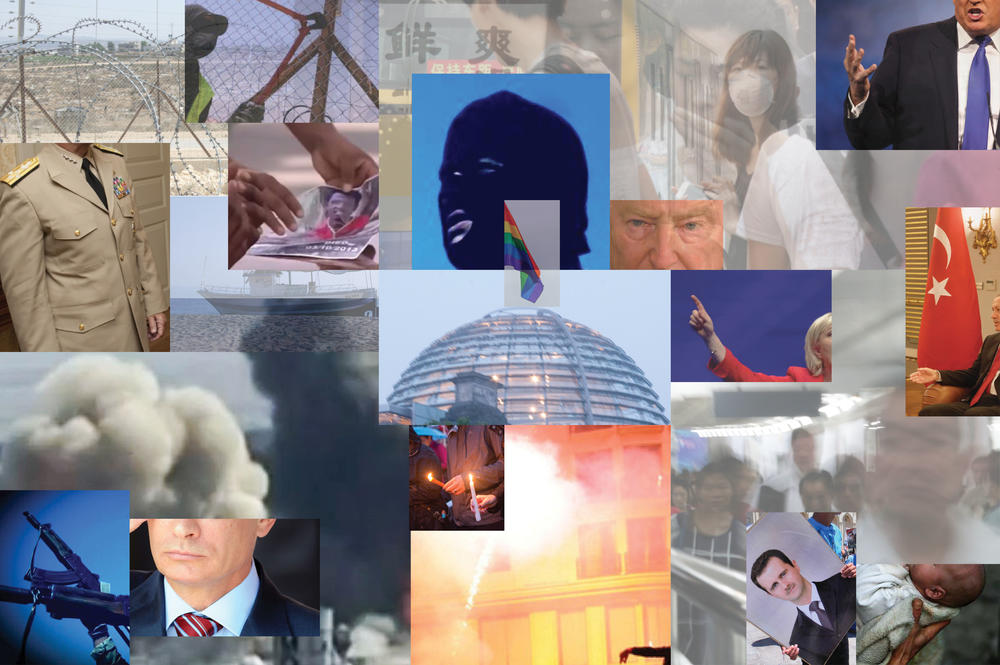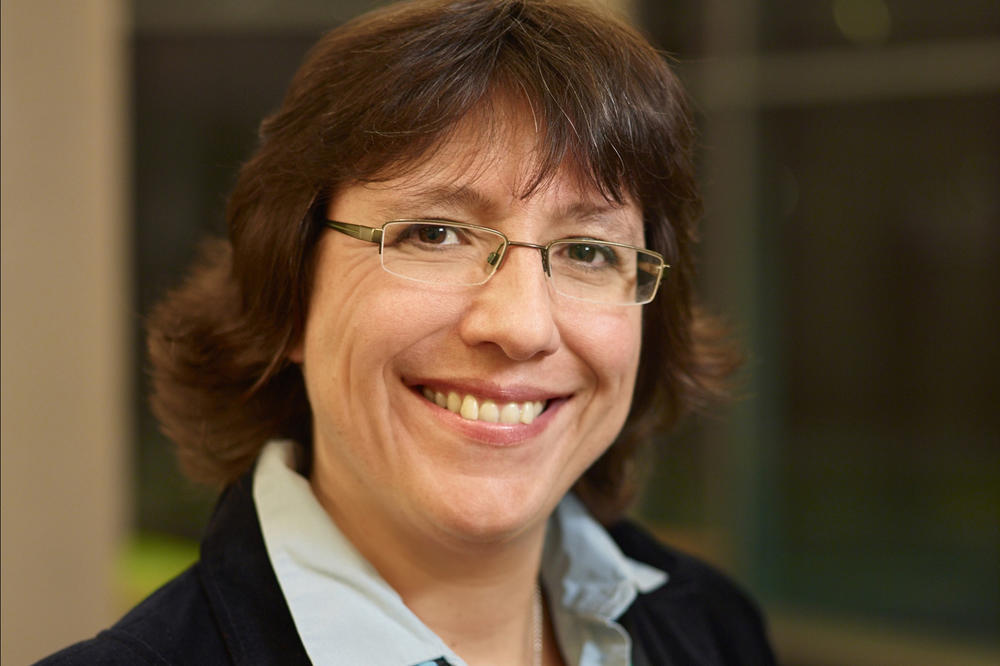Contestations of the Liberal Script (SCRIPTS)
Global Challenges for the Model of Liberal Democracy and Market Economy
The cluster will study the global challenges for liberal democracy as a model of organization.
Image Credit: Collage Vanessa Alessi / Image Credits
After the end of the Cold War, liberal democracy seemed to have finally prevailed. But 25 years later, the liberal model of order is in deep crisis. Authoritarian rulers such as Russian President Vladimir Putin, Hungarian head of state Viktor Orbán, the General Secretary of the Chinese Communist Party Xi Jinping and non-state armed groups such as Islamic State are aggressively positioning themselves as opponents of this model of order. At the same time, right-wing populist movements such as the AfD party in Germany are gaining strength within liberal societies and attacking the foundations of the liberal order. Transnational networks of authoritarian rulers and populists connect these actors.
In the Contestations of the Liberal Script (SCRIPTS) cluster, the current controversies surrounding the liberal order are examined from a historical, global and comparative perspective. What are the causes of the current controversies over the liberal script and how do they differ from previous crises? What are the implications for democracy and the global problems of the 21st century? From the perspective of SCRIPTS, the current challenges to liberal democracy are a global problem that occurs in many different forms in specific regions.
In addition to Freie Universität Berlin, Humboldt-Universität zu Berlin, the Wissenschaftszentrum Berlin and five other Berlin research institutions are involved in the cluster: the Hertie School of Governance, the Center for East European and International Studies, the German Institute for Economic Research, the German Institute of Global and Area Studies and the Leibniz-Zentrum Moderner Orient. “The research program bridges the prevailing divide between social sciences and regional studies with their different perspectives and methods,” says Tanja Börzel, Professor of Political Science at Freie Universität Berlin and spokesperson for the cluster. “The core of the research team is oriented towards the social sciences, with academics from the fields of history, economics and education as well as philosophy and Islamic studies expanding the profile.”
Half of the 25 academics involved have specific regional expertise, including expertise relating to the Middle East, Asia, Africa, Latin America and Eastern Europe. The current challenges to liberal democracy appear to be a global problem that occurs in many different forms in specific regions. We want to understand this diversity, its commonalities and interconnections.
The diversity of the challenges can only be grasped by bringing together different perspectives. SCRIPTS has therefore developed institutional partnerships with universities in all regions of the world. At the same time, the initiative relies on close cooperation with practical institutions from politics and culture in the German capital. An important partner is the Federal Foreign Office; the cluster can build on successful structures of cooperation that have already existed for years with the Free University of Berlin. This also includes the Humboldt Forum in the rebuilt Berlin Palace, where the perspectives on the challenges of the liberal model of order developed in the cluster's research projects will be the subject of the Humboldt Lab's first exhibition in 2019 and presented to the public. From the outset, SCRIPTS has seen itself not only as part of a global research network, but also as a hub for public debate on current crisis phenomena in liberal democracy.
Spokesperson: Prof. Dr. Tanja Börzel (Freie Universität Berlin) Applicant university: Freie Universität Berlin Cooperation partners:- Centre for East European and International Studies (ZOiS)
- German Institute for Economic Research (DIW)
- German Institute of Global and Area Studies (GIGA)
- Hertie School of Governance (Hertie School)
- Humboldt-Universität zu Berlin
- Leibniz-Zentrum Moderner Orient (ZMO)
- WZB Berlin Social Science Center (WZB)
- Afrika: University of Cape Town; Cheikh Anta Diop University, Dakar
- Australia: University of Sydney
- Europe: Nuffield College, Oxford; Sciences Po, Paris; Higher School of Economics, Moscow
- Latin America: University of São Paulo; El Colégio de México
- Middle East: Bilkent University, Ankara; Hebrew University, Jerusalem
- North America: Princeton University; University of California, Berkeley; Stanford University
- East Asia: University of Tokyo; Fudan University, Shanghai; Chinese University of Hong Kong
- South Asia: Jawaharlal Nehru University, New Delhi; National University of Singapore
- Culture: Haus der Kulturen der Welt, Humboldt-Forum, Hebbel am Ufer, Maxim Gorki Theater
- Politics: Federal Foreign Office, Friedrich-Ebert-Stiftung, Heinrich-Böll-Stiftung, Konrad-Adenauer-Stiftung


